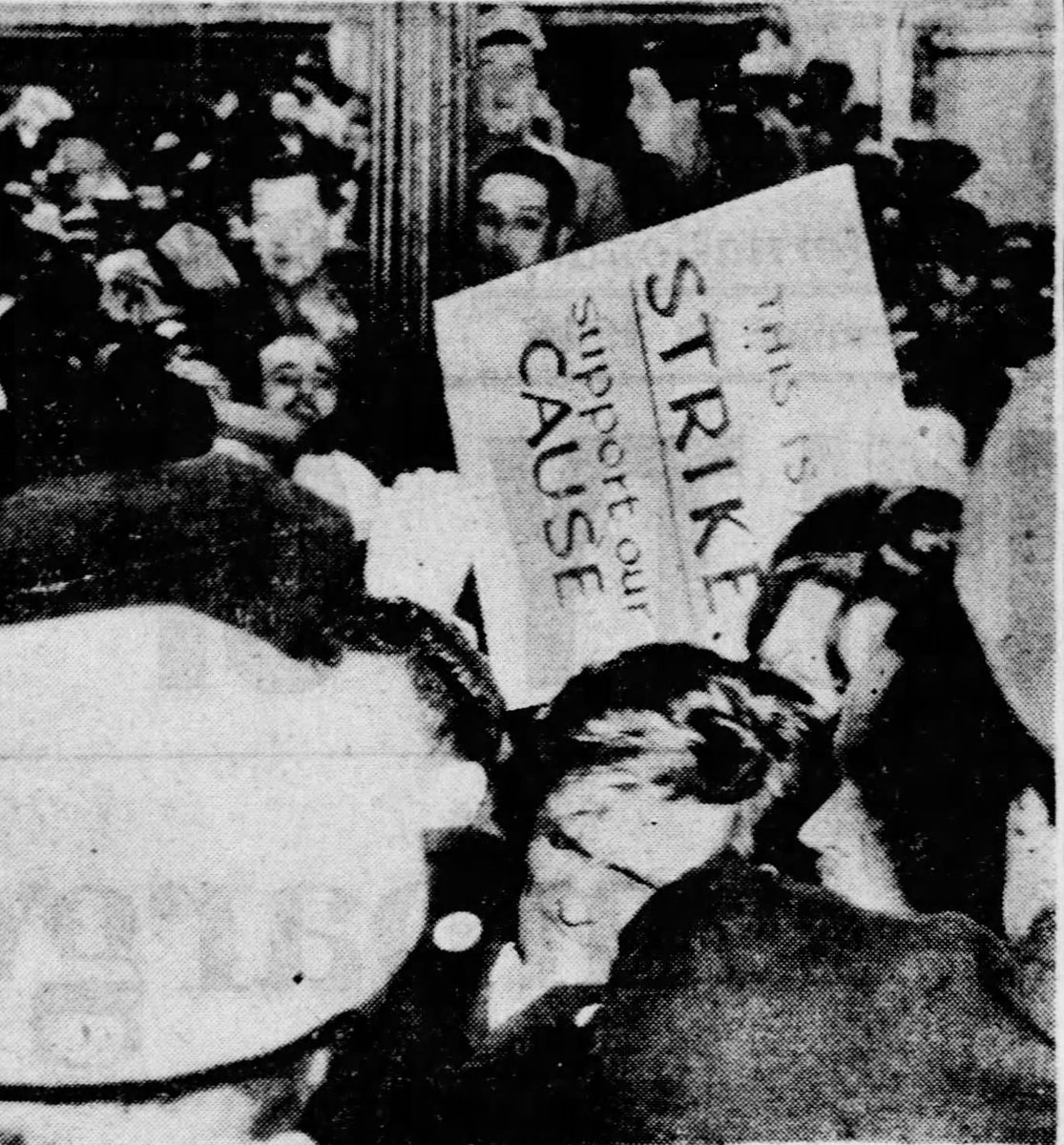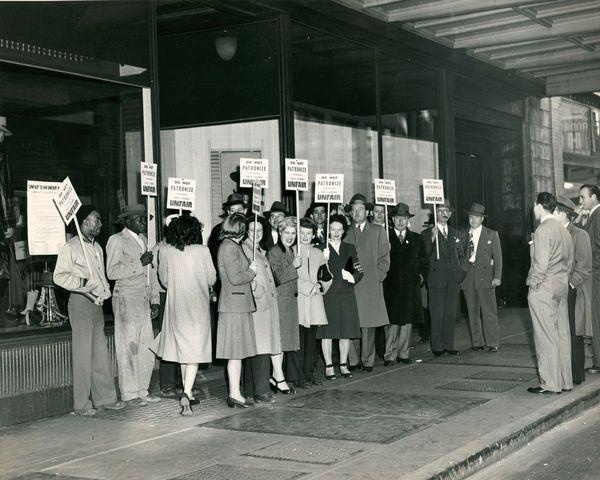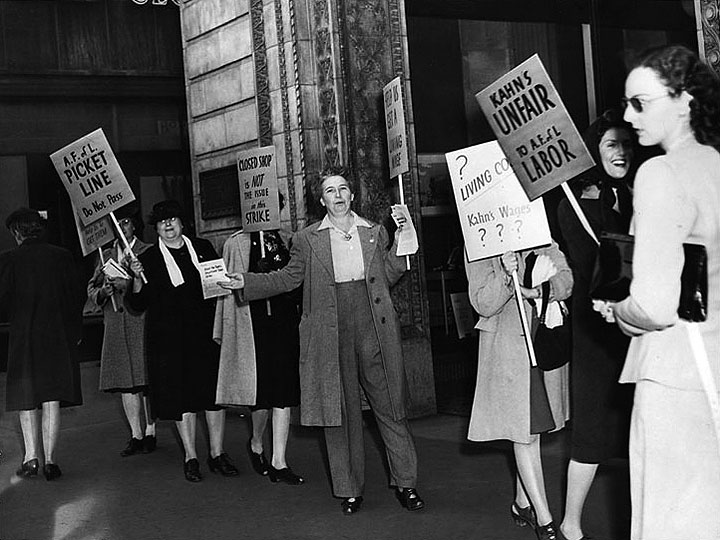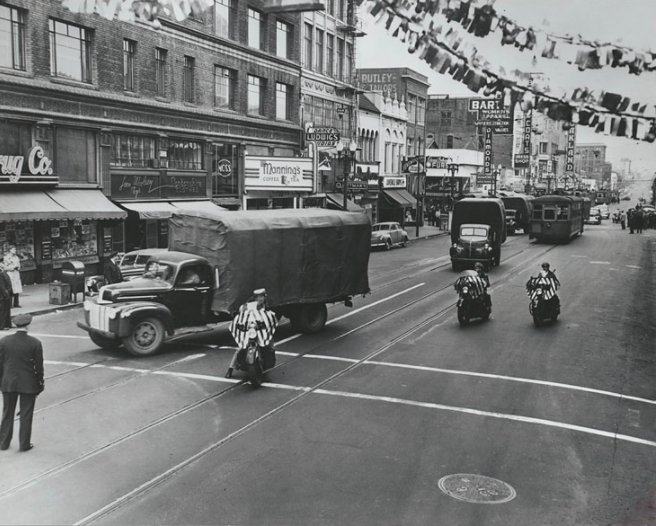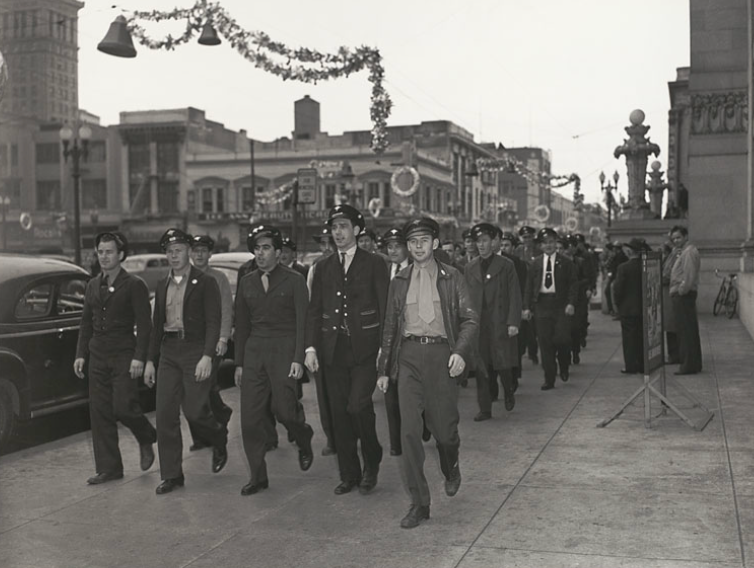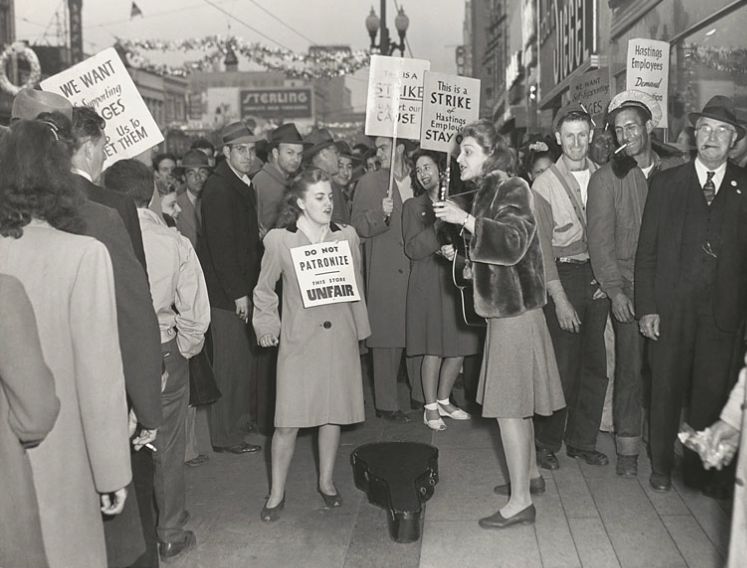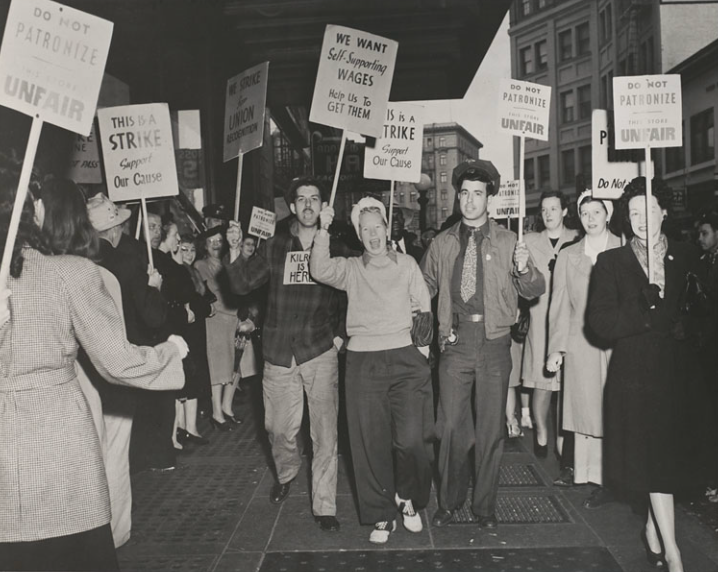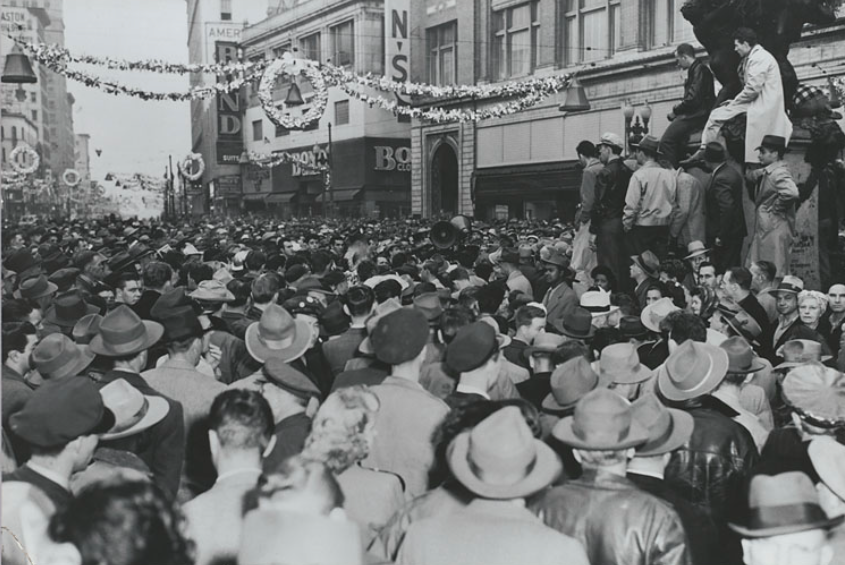Dec. 3, 1946: 75 years ago, Dec 2 1946, 10,000 workers amassed in downtown Oakland in [...]
75 years ago, Dec 2 1946, 10,000 workers amassed in downtown Oakland in solidarity with striking retail store clerks. The rank-and-file action marked the true beginning of the Oakland General Strike, one day before it was officially called by the AFL Central Labor Council
The General Strike grew out of a struggle for union recognition by downtown retail clerks, almost all of whom were women. Early on, some local retail stores caved to union demands, but the largest, Kahn’s and Hasting’s, refused. In late October, workers at both stores walked out
The retail workers received strong support from other workers in heavily-unionized Oakland. The East Bay Labor Journal compared Hasting’s management to “the Nazi heel,” and local teamsters refused to deliver merchandise to the department stores
On the morning of December 1st, strikebreaking truck drivers from Los Angeles reached the department stores with a massive police escort. Outraged, streetcar drivers abandoned their vehicles, causing a major work stoppage, as passengers found themselves unable to reach their jobs
The following day, 10,000 workers gathered in downtown Oakland, despite the refusal of union leadership (other than bartenders’ and teamsters’ unions) to officially call a strike. As a general strike had already materialized, the AFL Labor Council called one for the next day
On Dec 3, 20,000 workers joined pickets downtown, amid a joyous carnival atmosphere. One participant recalled: “It was like the earth stood still. Everything stopped.” The police fled from Hasting’s as masses of people danced in the streets to free jukeboxes
One eyewitness later wrote: “Never before or since had Oakland been so alive and happy for the majority of the population… In that city of over a quarter million, strangers passed each other on the street and did not have fear, but the opposite”
The Labor Council called an end to the strike on Dec 5, mere hours before a CIO mass meeting on “strike unity” was to be held. Union leadership, some of whom had opposed the “revolutionary” strike, secured only a promise by police to stop escorting strikebreaking truck drivers
